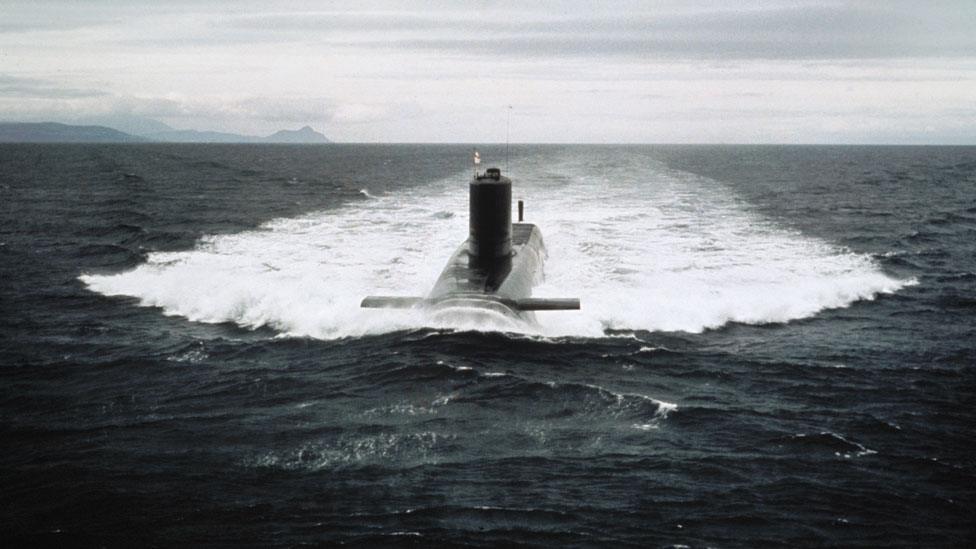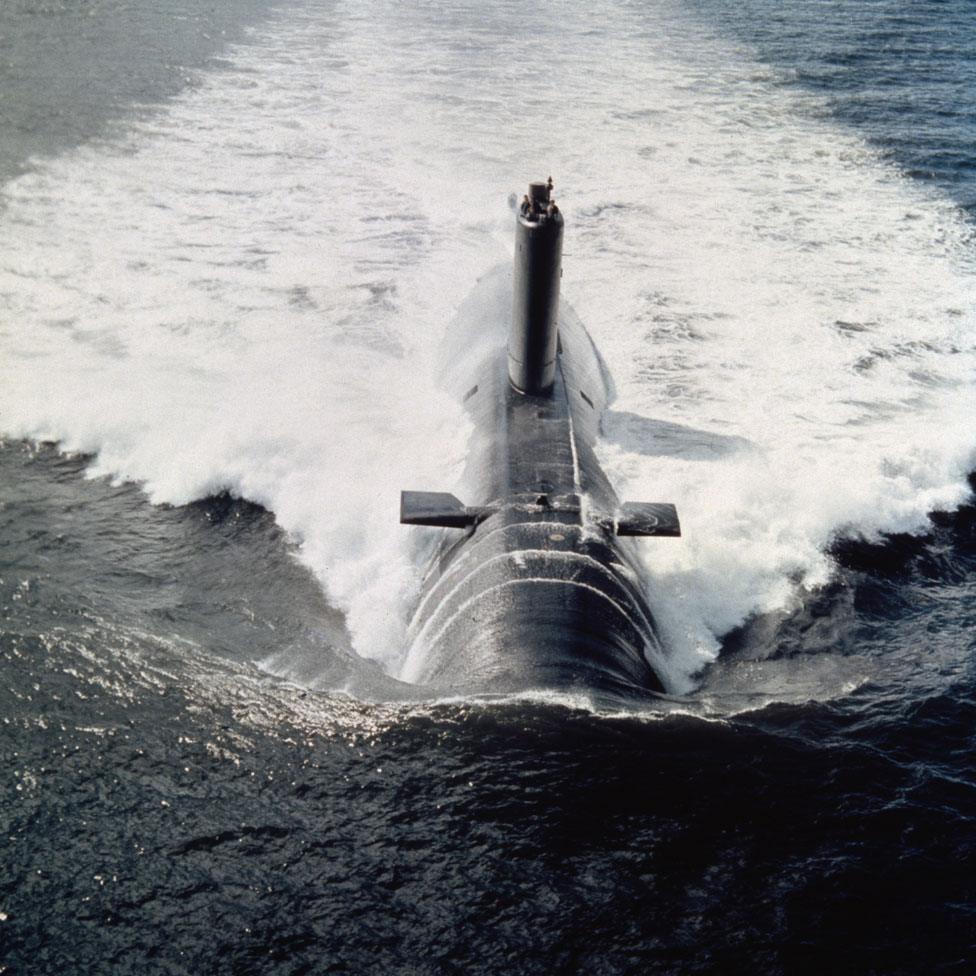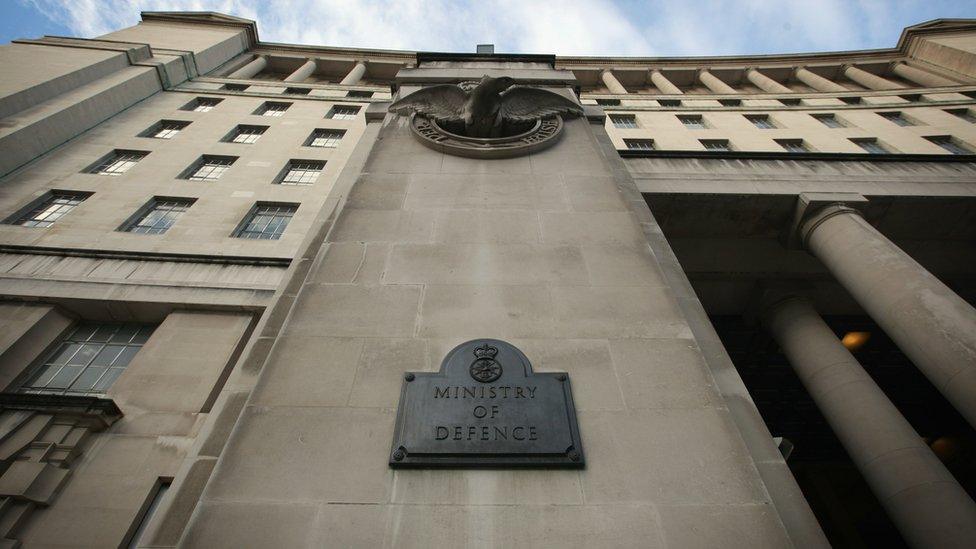Nuclear submarines: MoD criticised over submarine disposal
- Published

HMS Resolution pictured in about 1970
The Ministry of Defence has been criticised over its failure to dispose of 20 obsolete nuclear submarines.
Nine of the vessels still contain nuclear fuel, according to the government spending watchdog, the National Audit Office, external (NAO).
Failing to get rid of them risked the UK's reputation as a responsible nuclear power, the chairwoman of the Commons Public Accounts Committee said.
The MoD said it would dispose of them "as soon as practically possible".
According to the NAO, the department has not dismantled any of the submarines it has decommissioned since 1980.
In that time, the government has spent an estimated £500m storing the retired vessels in Rosyth, Fife, and Devonport, Devon.
The estimated cost of fully disposing of a submarine is £96m, the NAO said.
'Spiralling costs'
Meg Hillier, chairwoman of the Commons Public Accounts Committee (PAC), said the MoD must "get a grip" of the "spiralling" costs to the taxpayer.
"For more than 20 years the MoD has been promising to dismantle its out-of-service nuclear submarines and told my committee last year that it would now address this dismal lack of progress," she said.
"The disposal programmes have been beset by lengthy delays and spiralling costs, with taxpayers footing the bill."

Analysis
By Jonathan Beale, BBC defence correspondent
This report is a sober reminder of the expensive legacy costs of operating nuclear powered submarines, and not just building them.
The MoD currently plans to spend about £40bn on four new nuclear powered submarines - the new Dreadnought class - to carry Britain's Trident nuclear weapons.
But it still hasn't safely disposed of the four Resolution class submarines that were designed in the 1960s and that once carried the old Polaris nuclear missiles.
The National Audit Office report is also a reminder of the added costs of delaying difficult decisions.
Since 1980 the MoD has spent £500m just to store and maintain its obsolete submarines while it works out how to safely dismantle them.
The MoD's future liability for maintaining and disposing of the 20 decommissioned submarines, along with the 10 now in service submarines is £7.5bn.
And that is likely to rise, only adding to the pressures on a department that's already struggling to live within its means.

The report is the latest in a string of warnings to the MoD over its finances, with the PAC in February calling the MoD a "repeat offender" when it came to "poor financial planning".
The nuclear vessels being stored include the first submarines used to carry the UK's nuclear deterrent: the HMS Revenge, HMS Renown, HMS Repulse and HMS Resolution.
Attack submarine HMS Conqueror, which sank the Argentine cruiser General Belgrano during the Falklands War, is also in storage.

HMS Conqueror, another of the obsolete submarines
No submarines have been defueled since 2004, when regulators said waste-disposal facilities did not meet the required standard.
The process is not set to begin again for another four years.

'Future jeopardised'
Communities living near the UK's nuclear submarine storage sites have been critical of the MoD for years.
Although defence chiefs insist the subs are safe, some experts have warned of potential radiation leaks.
Christelle Gilbert, who lived on a housing estate near the Devonport dockyard, told the BBC in 2014 it was "disgusting" that it was taking so long to get rid of the vessels.

"It's just too long for the submarines to be sitting there as a potential threat to the city. It's a lack of responsibility on the government's part not to get them moved," she said.
"I have a son and I don't want his future jeopardised by it."

The MoD said in a statement: "The disposal of nuclear submarines is a complex and challenging undertaking.
"We remain committed to the safe, secure and cost-effective defueling and dismantling of all decommissioned nuclear submarines as soon as practically possible."
- Published6 March 2019

- Published21 March 2019

- Published18 March 2019
